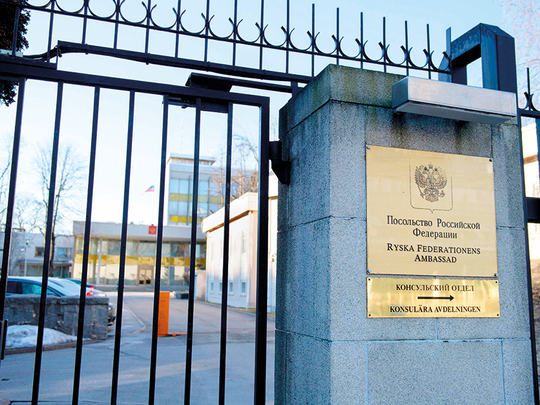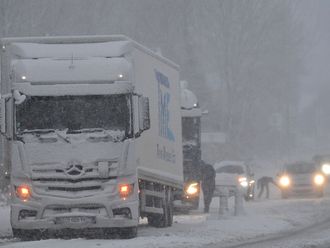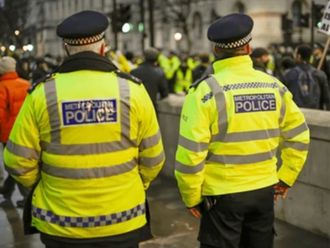
Moscow: Russia on Tuesday accused the US of pressuring Western countries to carry out mass expulsion of its diplomats in response to an alleged nerve agent attack on a former spy living in the UK and said Moscow will respond “harshly” to the decision.
Russian Foreign Minister Sergei Lavrov accused the US of “colossal blackmail” and said there were “few independent countries” left in modern Europe, Tass news agency reported.
Russian Deputy Foreign Minister Sergei Ryabkov said that “Moscow will respond harshly to the move by Washington and a number of Western countries and added that “the US had once again directed false accusations at Russia”, and that it “threatened and attempted to turn everything upside down”, Sputnik news agency reported.
However, she also stressed Moscow would not abandon strategic stability talks with Washington.
Australia and Ireland on Tuesday joined more than 20 other nations in expelling Russian diplomats.
On Tuesday Australian Prime Minister Malcolm Turnbull said his country was expelling two Russian diplomats whom he described as undeclared intelligence officers. They have been given seven days to leave Australia. Turnbull slammed Russia for “reckless and deliberate” conduct that harms global security and violates rules against the use of chemical weapons.
The Russian Embassy in Canberra said the decision was regrettable and jeopardised bilateral relationships.
“It is astonishing how easily the allies of Great Britain follow it blindly contrary to the norms of civilised bilateral dialogue and international relations, and against ... common sense,” it said.
A diplomatic front
Ireland also announced it was ordering one Russian diplomat to leave. Foreign Minister Simon Coveney called the nerve-agent attack on Skripal and his daughter a “shocking and abhorrent” use of chemical weapons.
Bulgaria said it recalled its ambassador from Russia as well.
The announcement marked a toughening in the former communist country’s position, four days after Prime Minister Boyko Borissov had said he had no plans to recall the envoy.
Bulgaria, which holds the rotating EU presidency, has not gone as far as Britain and other countries in the bloc which have directly accused Russia of carrying out the attack and have expelled Russian diplomats.
As US and European allies form a diplomatic front against Russia, Turkey’s coziness with the Kremlin is testing its crucial defence ties with the US and its military alliance with Nato.
Turkey, which has grown closer to Russia in recent years, stayed out of the fray, saying its foreign policy is based on interests of the Turkish nation and the state.
“At the moment, there is a positive and good relationship between Turkey and Russia,” Deputy Prime Minister Bekir Bozdag said late Monday. “Turkey isn’t considering taking any decisions against Russia.
Yet Turkey isn’t alone in its decision to avoid rebuking Russia. Half of the EU’s member nations have not expelled Russian officials over the March 4 attack.
Turkey’s ties with fellow Nato members have been strained in recent years, with President Recep Tayyip Erdogan pursuing a more assertive and independent foreign policy as conflict engulfed neighbouring Iraq and Syria. Relations with the European Union have soured over the bloc’s perception that Turkey has taken an increasingly autocratic turn. Friction with Washington has flared over US support for Kurdish militants in Syria whom Turkey considers terrorists.
‘Colossal blackmail’
Skripal and Yulia suffered the chemical attack in Salisbury on March 4 and were in a serious but stable condition in hospital. British officials identified the chemical as Novichok, a nerve agent developed by Russia during the Cold War.
The US called the 60 Russian officials “spies”, including a dozen based at the UN, and told Moscow to shut down its consulate in Seattle, which would end Russian diplomatic representation on the West Coast.
Britain expelled 23 Russian diplomats last week and Russia ordered retaliatory expulsions.
Lavrov said it was inevitable that there would be a response to the mass expulsion. “Certainly, we will not tolerate such impudence,” he said. The Russian Foreign Minister singled out the US for blame.
“When one or two diplomats are being expelled from this or that country, all the while whispering apologies in our ear, we know for sure that this is a result of colossal pressure, colossal blackmail, which unfortunately is Washington’s main tool now on the international area,” he said.
The Russian Foreign Ministry is said to be drawing up a number of possible retaliatory measures for President Vladimir Putin to consider.
Ireland was the latest country to order out a Russian diplomat. Earlier in the day, Australia said it was throwing out two Russian diplomats suspected of being “undeclared intelligence officers”.
President of the European Council Donald Tusk said the EU states had decided to take action after a meeting, held last week, about the Salisbury poisoning. He did not rule out further measures.
The EU members Germany, France and Poland are each to expel four Russian diplomats with intelligence agency backgrounds. Lithuania and the Czech Republic said they would expel three, and Denmark, Italy, Spain and the Netherlands two each, according to the Guardian.
Estonia, Latvia, Croatia, Finland, Hungary, Sweden and Romania each expelled one Russian. Iceland announced it would not be sending officials to the World Cup in Russia.
Ukraine, which is not an EU member, is to expel 13 Russian diplomats, while Albania, an EU candidate member, ordered the departure of two Russians from the embassy in Tirana. Macedonia, another EU candidate, expelled one Russian official.
Canada announced it was expelling four diplomatic staff serving in Ottawa and Montreal who the government said were spies.
Meanwhile, Moscow’s Ambassador to the UN Vassily Nebenzia called Washington’s decision a “very unfortunate and very unfriendly move”.
EU countries that have said they have no intention of expelling diplomats included Austria, Greece and Portugal, although all have said they supported the UK and condemned the poisoning.












